Professor Sophia Yaliraki
Co-Director
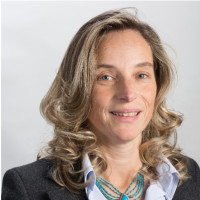 Sophia Yaliraki is Professor of Theoretical Chemistry at Imperial College. After studies at Harvard and MIT, her group and collaborators at Imperial have developed multiscale techniques based on graph learning with applications in allosteric drug design, precision healthcare, digital chemistry, computational social science and online learning analytics. She teaches Data Analytics in Chemistry, is the Director of the Institute for Digital Molecular Design and Fabrication (DigiFAB), and Course Co-director of a new Masters course in Digital Chemistry. She has held recurring visiting appointments in the USA, Europe and Israel and has had an active role in fostering talent from school pupils to academics.
Sophia Yaliraki is Professor of Theoretical Chemistry at Imperial College. After studies at Harvard and MIT, her group and collaborators at Imperial have developed multiscale techniques based on graph learning with applications in allosteric drug design, precision healthcare, digital chemistry, computational social science and online learning analytics. She teaches Data Analytics in Chemistry, is the Director of the Institute for Digital Molecular Design and Fabrication (DigiFAB), and Course Co-director of a new Masters course in Digital Chemistry. She has held recurring visiting appointments in the USA, Europe and Israel and has had an active role in fostering talent from school pupils to academics.
Professor Kim Jelfs
Co-Director
 Professor Kim Jelfs is a Professor in the Department of Chemistry at Imperial College. Her group specialises in the use of computer simulations to assist in the discovery of supramolecular materials, particularly porous materials and organic electronics. Her research includes the development of open-source software to automate the assembly and testing of materials, with the application of artificial intelligence techniques including an evolutionary algorithm and machine learning. Kim was awarded a 2018 Royal Society of Chemistry Harrison-Meldola Memorial Prize, a 2019 Philip Leverhulme Prize in Chemistry, was the 2022 Blavatnik Awards Laureate in Chemistry and holds an European Research Council Starting Grant.
Professor Kim Jelfs is a Professor in the Department of Chemistry at Imperial College. Her group specialises in the use of computer simulations to assist in the discovery of supramolecular materials, particularly porous materials and organic electronics. Her research includes the development of open-source software to automate the assembly and testing of materials, with the application of artificial intelligence techniques including an evolutionary algorithm and machine learning. Kim was awarded a 2018 Royal Society of Chemistry Harrison-Meldola Memorial Prize, a 2019 Philip Leverhulme Prize in Chemistry, was the 2022 Blavatnik Awards Laureate in Chemistry and holds an European Research Council Starting Grant.
Dr Antonio del Rio Chanona
Data and Modelling Pillar Co-Lead
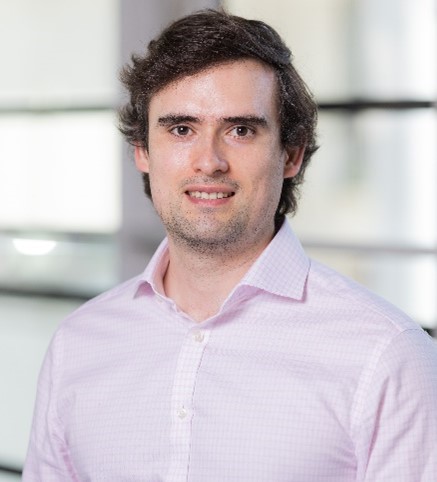 Dr. Antonio del Rio Chanona is head of the Optimisation and Machine Learning for Process Systems Engineering group at Imperial College London with research focus on Data-Driven Optimisation, Reinforcement Learning, Control, and Hybrid Modelling applied to process systems engineering. Antonio received his MEng from UNAM in Mexico, and his PhD from the University of Cambridge where he was awarded the Danckwerts-Pergamon Prize for the best doctoral thesis of his year. Antonio has received awards from the International Federation of Automatic Control (IFAC), the Association of European Operational Research Societies (EURO), and the Institution of Chemical Engineers (IChemE) in recognition for research in areas of process systems engineering, industrialisation of bioprocesses, and adoption of intelligent and autonomous learning algorithms to chemical engineering.
Dr. Antonio del Rio Chanona is head of the Optimisation and Machine Learning for Process Systems Engineering group at Imperial College London with research focus on Data-Driven Optimisation, Reinforcement Learning, Control, and Hybrid Modelling applied to process systems engineering. Antonio received his MEng from UNAM in Mexico, and his PhD from the University of Cambridge where he was awarded the Danckwerts-Pergamon Prize for the best doctoral thesis of his year. Antonio has received awards from the International Federation of Automatic Control (IFAC), the Association of European Operational Research Societies (EURO), and the Institution of Chemical Engineers (IChemE) in recognition for research in areas of process systems engineering, industrialisation of bioprocesses, and adoption of intelligent and autonomous learning algorithms to chemical engineering.
Professor Claire Adjiman
Data and Modelling Pillar Co-Lead
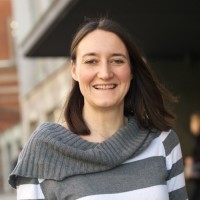 Claire Adjiman is Professor of Chemical Engineering at Imperial College London. She holds an MEng from Imperial College and a PhD from Princeton University, both in Chemical Engineering. Her research interests include integrated process and molecular/materials design, including the development of design methods, property prediction techniques and optimisation algorithms. She works extensively with industry, especially the oil and gas, pharmaceuticals and agrochemicals sectors and has licensed thermodynamic modelling software. She has received awards that include a RAEng-ICI Fellowship (1998-2003), the Philip Leverhulme Prize for Engineering (2009), the SCI Armstrong Lecture (2011), an EPSRC Leadership Fellowship (2012-2017), and the RSC Elizabeth Colbourn Memorial Lecture (2020). She is a Fellow of the Royal Academy of Engineering, the Institution of Chemical Engineers and the Royal Society of Chemistry. She co-edited a book on Molecular Systems Engineering published (Wiley-VCH). She is a member of the editorial boards of Molecular Systems Design and Engineering, Computers and Chemical Engineering and Fluid Phase Equilibria, and an associate editor of the Journal of Global Optimization. At Imperial, she was a Founding Co-Director of the Institute for Molecular Science and Engineering (2015-2020) and she is Director of the Centre for Process Systems Engineering. She is a Trustee of Future Innovation in Process Systems Engineering (FIPSE). She is a member of several advisory bodies, in the UK (EPSRC Strategic Advisory Network) and Singapore (CARES-C4T), and chairs the Scientific Advisory Board of the Max Planck Institute for Dynamics of Complex Technical Systems Magdeburg (Germany).
Claire Adjiman is Professor of Chemical Engineering at Imperial College London. She holds an MEng from Imperial College and a PhD from Princeton University, both in Chemical Engineering. Her research interests include integrated process and molecular/materials design, including the development of design methods, property prediction techniques and optimisation algorithms. She works extensively with industry, especially the oil and gas, pharmaceuticals and agrochemicals sectors and has licensed thermodynamic modelling software. She has received awards that include a RAEng-ICI Fellowship (1998-2003), the Philip Leverhulme Prize for Engineering (2009), the SCI Armstrong Lecture (2011), an EPSRC Leadership Fellowship (2012-2017), and the RSC Elizabeth Colbourn Memorial Lecture (2020). She is a Fellow of the Royal Academy of Engineering, the Institution of Chemical Engineers and the Royal Society of Chemistry. She co-edited a book on Molecular Systems Engineering published (Wiley-VCH). She is a member of the editorial boards of Molecular Systems Design and Engineering, Computers and Chemical Engineering and Fluid Phase Equilibria, and an associate editor of the Journal of Global Optimization. At Imperial, she was a Founding Co-Director of the Institute for Molecular Science and Engineering (2015-2020) and she is Director of the Centre for Process Systems Engineering. She is a Trustee of Future Innovation in Process Systems Engineering (FIPSE). She is a member of several advisory bodies, in the UK (EPSRC Strategic Advisory Network) and Singapore (CARES-C4T), and chairs the Scientific Advisory Board of the Max Planck Institute for Dynamics of Complex Technical Systems Magdeburg (Germany).
Dr Becky Greenaway
Automation Pillar Co-Lead
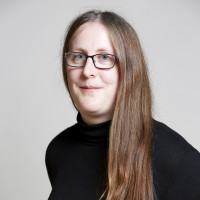 Dr Becky Greenaway is a Royal Society University Research Fellow in the Department of Chemistry. Her group specialises in the design and synthesis of molecular organic materials, such as organic cages and self-sorted assemblies formed using dynamic covalent chemistries, and porous liquids. This involves the use of high-throughput robotic platforms to streamline the process, and the development of hybrid discovery workflows with collaborators, combining high-throughput automation with computational modelling, to both guide and accelerate discovery.
Dr Becky Greenaway is a Royal Society University Research Fellow in the Department of Chemistry. Her group specialises in the design and synthesis of molecular organic materials, such as organic cages and self-sorted assemblies formed using dynamic covalent chemistries, and porous liquids. This involves the use of high-throughput robotic platforms to streamline the process, and the development of hybrid discovery workflows with collaborators, combining high-throughput automation with computational modelling, to both guide and accelerate discovery.
Professor Camille Petit
Automation Pillar Co-Lead
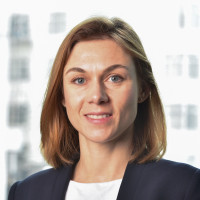 Camille Petit is a Reader in Materials Engineering in the Department of Chemical Engineering. Her research focuses on elucidating the fundamentals of porous materials formation, structure, and chemistry to exploit them in interfacial applications, i.e. separation of molecules and solar fuel production. Her work also investigates the implications of using these materials at the large-scale. Prof. Petit is PI on the EPSRC Strategic Equipment Grant ATLAS (Automated High Throughput Platform Suite for Molecular Systems Discovery). She is also part of the IMSE Research Board.
Camille Petit is a Reader in Materials Engineering in the Department of Chemical Engineering. Her research focuses on elucidating the fundamentals of porous materials formation, structure, and chemistry to exploit them in interfacial applications, i.e. separation of molecules and solar fuel production. Her work also investigates the implications of using these materials at the large-scale. Prof. Petit is PI on the EPSRC Strategic Equipment Grant ATLAS (Automated High Throughput Platform Suite for Molecular Systems Discovery). She is also part of the IMSE Research Board.
Dr Felice Torrisi
Sensors and Characterisation Platforms Pillar Co-Lead
 Felice Torrisi is a Senior Lecturer in 2D materials and Wearable Bioelectronics in the Department of Chemistry and Fellow of Trinity College, Cambridge. His research interests span from printed and flexible electronics to photonics with graphene and 2D materials, with particular focus on energy, sensing, wearable electronics and bioelectronics. This involves the synthesis and stabilisation of a wide range of 2D materials in solution for applications in printed electronics and optoelectronics. His research group also pioneers the development of functional fibres for electronic textiles and bioelectronics by incorporation of biocompatible 2D materials and nanomaterials into sustainable fibre spinning processes and textile integration. This rapidly emerging field at the interface of nanoscience, chemistry and engineering is delivering electronics with new form factors, mechanical properties and bio-compatibility, accelerating the development of new wearable with impact in healthcare technologies, sensing and manufacturing. He is the PI on various EPSRC projects focusing on the advanced large scale manufacturing of wearable electronic textiles.
Felice Torrisi is a Senior Lecturer in 2D materials and Wearable Bioelectronics in the Department of Chemistry and Fellow of Trinity College, Cambridge. His research interests span from printed and flexible electronics to photonics with graphene and 2D materials, with particular focus on energy, sensing, wearable electronics and bioelectronics. This involves the synthesis and stabilisation of a wide range of 2D materials in solution for applications in printed electronics and optoelectronics. His research group also pioneers the development of functional fibres for electronic textiles and bioelectronics by incorporation of biocompatible 2D materials and nanomaterials into sustainable fibre spinning processes and textile integration. This rapidly emerging field at the interface of nanoscience, chemistry and engineering is delivering electronics with new form factors, mechanical properties and bio-compatibility, accelerating the development of new wearable with impact in healthcare technologies, sensing and manufacturing. He is the PI on various EPSRC projects focusing on the advanced large scale manufacturing of wearable electronic textiles.
Professor Gavin Davies
Sensors and Characterisation Platforms Pillar Co-Lead
 Professor Gavin Davies is an experimental particle physicist. Our understanding of the fundamental building blocks of nature and the forces that hold them together is ‘encoded’ in the Standard Model. Whilst tremendously successful, it cannot be the final answer, as it does not address issues such as why over 80% of the matter in the universe isn’t visible. His early research was in detecting dark matter and included developing new, more powerful search techniques. Subsequently his research has focused on the Higgs boson with experiments at CERN in Switzerland and Fermilab in the US, including the Compact Muon Solenoid (CMS), and associated Higgs boson discovery. A critical aspect of data taking at a hadron collider such as the LHC is the ability to trigger (select) events of potential interest, and this is increasingly being done with high throughput digital electronics and machine learning. He has held various Fellowships in the UK, Italy and Switzerland and has been a member of Faculty at Imperial College London since 2000.
Professor Gavin Davies is an experimental particle physicist. Our understanding of the fundamental building blocks of nature and the forces that hold them together is ‘encoded’ in the Standard Model. Whilst tremendously successful, it cannot be the final answer, as it does not address issues such as why over 80% of the matter in the universe isn’t visible. His early research was in detecting dark matter and included developing new, more powerful search techniques. Subsequently his research has focused on the Higgs boson with experiments at CERN in Switzerland and Fermilab in the US, including the Compact Muon Solenoid (CMS), and associated Higgs boson discovery. A critical aspect of data taking at a hadron collider such as the LHC is the ability to trigger (select) events of potential interest, and this is increasingly being done with high throughput digital electronics and machine learning. He has held various Fellowships in the UK, Italy and Switzerland and has been a member of Faculty at Imperial College London since 2000.
Professor Klaus Hellgardt
Synthesis and Processes Pillar Co-Lead
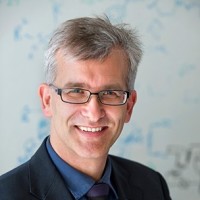 Klaus Hellgardt is Professor of Chemical Engineering at Imperial College London (ICL). He has authored over 150 research articles (h-index = 32), 8 patents, various contributions to books and over 100 refereed conference proceedings. His research focuses on advanced reaction engineering and applied catalysis, with specific emphasis on flow chemistry related to solar (bio)fuels, smart petrofuels engineering, kinetics, (electro-) chemical and bioreactor modelling, design and application. He is the current co-director of the Next Generation Synthesis & Reaction Technology Centre of Doctoral Training (CDT) at ICL. Klaus was awarded the title EurIng by the FEANI in 2003.
Klaus Hellgardt is Professor of Chemical Engineering at Imperial College London (ICL). He has authored over 150 research articles (h-index = 32), 8 patents, various contributions to books and over 100 refereed conference proceedings. His research focuses on advanced reaction engineering and applied catalysis, with specific emphasis on flow chemistry related to solar (bio)fuels, smart petrofuels engineering, kinetics, (electro-) chemical and bioreactor modelling, design and application. He is the current co-director of the Next Generation Synthesis & Reaction Technology Centre of Doctoral Training (CDT) at ICL. Klaus was awarded the title EurIng by the FEANI in 2003.
Professor Mimi Hii
Synthesis and Processes Pillar Co-Lead
 Professor Mimi Hii is Professor of Catalysis in the Department of Chemistry. Her research interests are in the area of sustainable catalysis and processes, particularly for the synthesis of high-value chemicals. As the founder and Director of the Centre for Rapid Online Analysis of Reactions (ROAR), she champions the adoption and development of data-enabling tools, to support quantitative, statistical and Machine-Learning approaches in chemical research. She is also the founding Director of the EPSRC Centre for Doctoral Training in Next Generation Synthesis & Reaction Technology (rEaCt), aiming to equip researchers with the relevant skills to tackle challenges pose by the data revolution. Her external appointments include: co-lead of the Dial-a-Molecule Grand Challenge Network, Associate Editor for ACS Sustainable Chemistry & Engineering, and steering committee member of the UK Catalysis Hub.
Professor Mimi Hii is Professor of Catalysis in the Department of Chemistry. Her research interests are in the area of sustainable catalysis and processes, particularly for the synthesis of high-value chemicals. As the founder and Director of the Centre for Rapid Online Analysis of Reactions (ROAR), she champions the adoption and development of data-enabling tools, to support quantitative, statistical and Machine-Learning approaches in chemical research. She is also the founding Director of the EPSRC Centre for Doctoral Training in Next Generation Synthesis & Reaction Technology (rEaCt), aiming to equip researchers with the relevant skills to tackle challenges pose by the data revolution. Her external appointments include: co-lead of the Dial-a-Molecule Grand Challenge Network, Associate Editor for ACS Sustainable Chemistry & Engineering, and steering committee member of the UK Catalysis Hub.
Dr Charles Romain
DigiFAB Research Data Strategy Co-Lead
 Through his scientific journey as a researcher in chemistry, Charles has developed an interest and an expertise in research data management and FAIR data. He will assist the institute with its research data strategy including the identification, dissemination and implementation of good practice for data sharing and publication.
Through his scientific journey as a researcher in chemistry, Charles has developed an interest and an expertise in research data management and FAIR data. He will assist the institute with its research data strategy including the identification, dissemination and implementation of good practice for data sharing and publication.
Dr Alex Ganose
DigiFAB Research Data Strategy Co-Lead
Alex Ganose is a Lecturer and EPSRC Fellow in the Department of Ch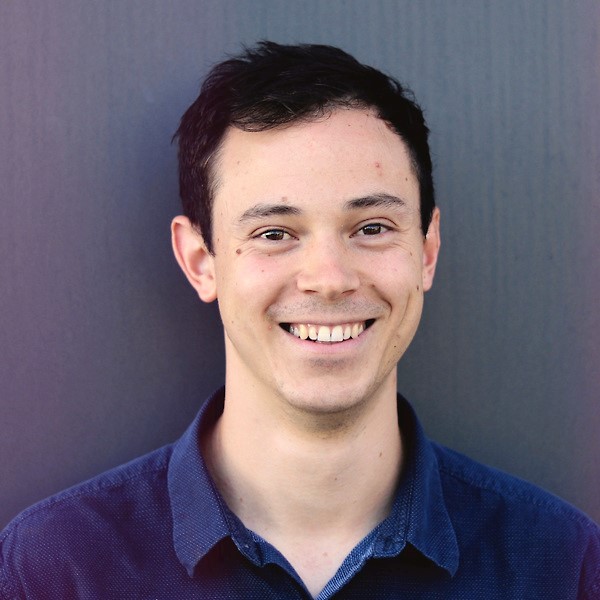 emistry at Imperial College London. His research uses computational materials chemistry, machine learning, and data science to design new functional materials for technological problems, including renewable energy generation (photovoltaics & thermoelectrics) and energy storage. He has designed and developed open-source software packages for automating high-throughput calculations, calculating electron-phonon interactions and transport properties, and automating machine learning on materials science datasets. He is a co-investigator at the Materials Project.
emistry at Imperial College London. His research uses computational materials chemistry, machine learning, and data science to design new functional materials for technological problems, including renewable energy generation (photovoltaics & thermoelectrics) and energy storage. He has designed and developed open-source software packages for automating high-throughput calculations, calculating electron-phonon interactions and transport properties, and automating machine learning on materials science datasets. He is a co-investigator at the Materials Project.
Dr Chris Mellor
AIchemy Hub Manager/Institute Manager
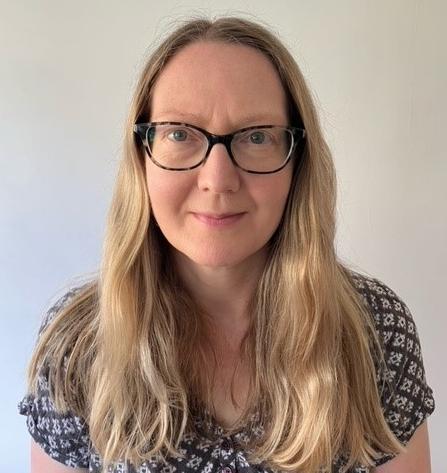 Chris has a wealth of experience in research, strategy and project management. She is responsible for the day-to-day running of the AIchemy Hub and its links with DigiFAB. She facilitates the delivery of Hub and DigiFAB objectives, organises events, and engages internal and external stakeholders.
Chris has a wealth of experience in research, strategy and project management. She is responsible for the day-to-day running of the AIchemy Hub and its links with DigiFAB. She facilitates the delivery of Hub and DigiFAB objectives, organises events, and engages internal and external stakeholders.
Contact us
Email us at DigiFAB@imperial.ac.uk
Twitter @ImperialDigiFAB
Find us at
DigiFAB Institute
Imperial College London
Molecular Sciences Research Hub
White City Campus
Wood Lane | W12 0BZ | UK